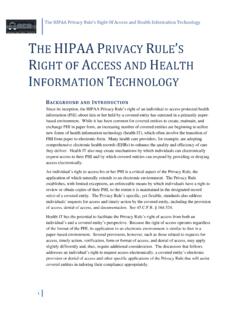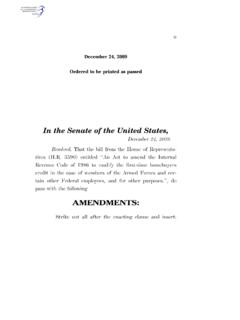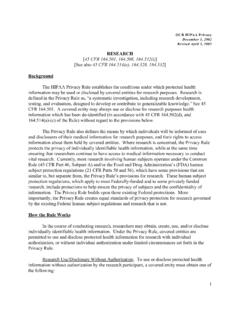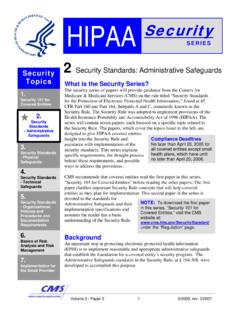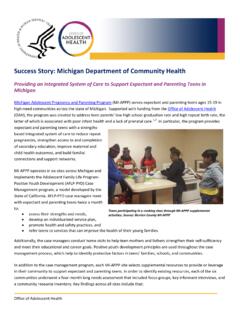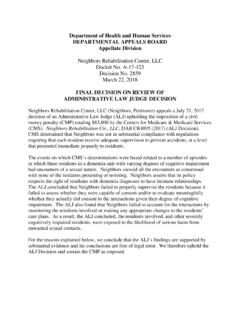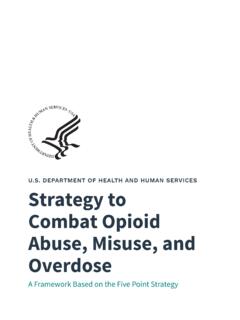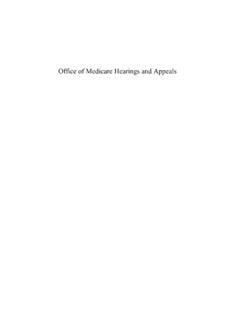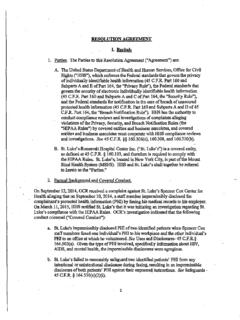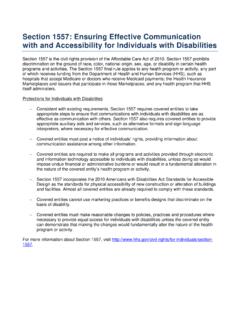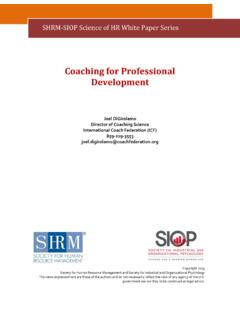Transcription of Considering Faith, Community, and Mental Health During …
1 Considering faith , community , and Mental Health During the COVID-19 Crisis According to a recent survey released by the American Psychiatric Association i, many people have significant anxiety and concerns related to coronavirus disease (COVID-19). Nearly half of Americans (48%) are anxious about the possibility of getting coronavirus. Nearly four in ten Americans (40%) are anxious about becoming seriously ill or dying from coronavirus. Far more Americans (62%) are anxious about the possibility of family and loved ones getting coronavirus.
2 One in four people who seek help for Mental Health concerns turn to faith leaders before they seek help from URGENT NOTE: clinical professionals ii. If you or someone you care about feels overwhelmed with emotions like sadness, depression, or anxiety, or This document is written with faith - and feel like you want to harm yourself or others, call 911. community -based leaders in mind, as or emergency professionals. they serve people experiencing fear and anxiety associated with COVID-19. You can also contact the Substance Abuse and Mental Health Services Administration's (SAMHSA) National The following are resources that address Suicide Prevention Lifeline 1-800-273-TALK helpline.
3 These fears and the Mental Health You can refer people to the Disaster Distress Helpline concerns that may be associated with at 800-985-5990 or text TalkWithUs to 66746. COVID-19. The resources recommended There is also the National Helpline at 800-662-HELP. herein are a compilation gathered for those seeking services. These are 24/7, 365-day-a- through Partnership Center research and year, national hotlines dedicated to providing received from stakeholders. The immediate crisis counseling for people who are resource list is not intended to be experiencing emotional distress.
4 Exhaustive, and we welcome other resource recommendations be sent to 1. General Information about Stress and Coping The outbreak of COVID-19 may be stressful for people. Fear and anxiety about a disease can be overwhelming and cause strong emotions in adults and children. Coping with stress will make you, the people you care about, and your community stronger. Prolonged stress may exacerbate already existing or underlying psychological disorders. It also may trigger stress reactions like panic, anxiety, and depression.
5 Additionally, families not accustomed to spending so much time in close quarters may see relationships strained. It is important to remember parents and caregivers. o Parents juggling the requirements of work with the challenge of homeschooling their children may need your support. o community faith leaders often serve as their community 's caregivers and should be remembered and served as they serve their community . Federal Resources Be sure to get the latest information from the Centers for Disease Control's (CDC) COVID-19 website.
6 The CDC also has guidance for addressing stress and anxiety related to COVID19 and specific guidance for faith and community leaders. SAMHSA has guidance and resources to assist individuals, providers, communities, and states across the country. Taking care of your Behavioral Health is a helpful resource to consider the Mental Health impacts of social distancing and how to address them. SAMHSA's Mental Health Technology Transfer Centers are also providing online training and technical assistance related to COVID-19.
7 SAMHSA's Serious Mental Illness Advisor (SMI Advisor) has a page with additional information. SAMHSA also has a helpful resource for talking with children, which includes tips for Caregivers, Parents, and Teachers During infectious disease outbreaks like COVID-19. The Administration for community Living (ACL) supports the ARCH Respite community , which includes resources on caregivers and COVID-19. NIH hosted a helpful conversation on Dealing with Stress, Anxiety, and Grief During COVID-19. Telehealth services have been expanded as a result of COVID19 and may be applicable to specific circumstances, including expansions for Medicare beneficiaries.
8 A helpful FAQ is available to answer questions for clients and clinicians alike. 2. Tools and Resources All Mental Health launched a FREE web app available at to help offer support During these difficult times. The handout, Managing Stress Resource, includes tips for coping with the stress of COVID-19. This Q&A with Dr. Holly Oxhandler is available in Considering how to promote resilient Mental Health During this time. Many have also acknowledged strategies and exercises that promote mindfulness as an effective way people of faith , as well as individuals of no faith identification, can address stress and anxiety related to COVID-19: Psychology Today: Coping with the Coronavirus with Mindfulness and Compassion Child Mind Institute: How Mindfulness Can Help During COVID-19.
9 Johns Hopkins Medicine: Stressed About COVID-19? Here's What Can Help There are a number of free apps for smartphones that provide mindfulness exercises. Psychhub is listing tools and links on its resource page. Psychological First Aid is a free, seven-hour online course to learn how to help people in an emergency by employing the RAPID model: Reflective listening, Assessment of needs, Prioritization, Intervention, and Disposition. National Advocacy Resources (Listed In Alphabetical Order). A number of national advocacy organizations have developed resources for addressing Mental Health and the coronavirus: Mental Health Alliance (MHA) Mental Health First Aid (MHFA).
10 National Alliance on Mental Illness National Council for Behavioral Health (NAMI) (NCHB). Mental Health Professional Organizations (Listed In Alphabetical Order). A number of Mental Health Professional Organizations have developed resources for addressing Mental Health and the coronavirus. American Association for Marriage and American Psychological Association Family Therapy National Association of Social Workers American Psychiatric Association (NASW). 3. Organizations below are listed by faith traditions in alphabetical order.
